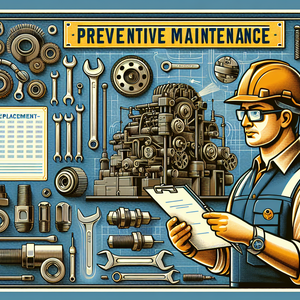The Hidden Skills: Soft Skills Every Entry-Level Full Stack Developer Needs

Soft skills, often termed interpersonal skills, encompass a variety of competencies that facilitate effective communication, collaboration, and problem-solving within a work environment. For full stack developers who juggle both front-end and back-end tasks, the ability to effectively interact with team members and stakeholders is crucial. Employers today increasingly recognize that technical proficiency alone does not guarantee success; rather, the capacity to collaborate and communicate effectively can significantly influence project outcomes and team dynamics.
1. Communication Skills
Effective communication is the bedrock of successful collaboration in any tech team. Entry-level developers must articulate their thoughts and ideas clearly, whether discussing code with peers, presenting projects to stakeholders, or clarifying project requirements. According to a LinkedIn survey, 57% of employers prioritize communication skills over technical abilities. For instance, a developer who can distill complex technical jargon into simple terms fosters understanding and alignment within their team, ultimately leading to smoother project execution. Moreover, active listening plays a critical role in communication. By genuinely engaging with feedback from colleagues and supervisors, entry-level developers can better grasp project needs and contribute meaningfully. For example, during a team meeting, a developer who actively listens to others’ input can adjust their work based on shared insights, enhancing the overall project quality.
2. Teamwork and Collaboration
Full stack developers frequently find themselves working within diverse teams, collaborating with designers, project managers, and fellow developers. The ability to thrive in a team environment is essential for achieving collective goals. This skill involves being receptive to different perspectives, providing support to teammates, and sharing knowledge and resources. The American Management Association highlights that teamwork skills are among the top qualities employers seek. Developers who exhibit strong collaborative capabilities are often viewed as indispensable team members. For example, participating in code reviews or engaging in pair programming not only sharpens individual skills but also cultivates a culture of collaboration and continuous improvement.
3. Problem-Solving Abilities
In software development, challenges are a given. The ability to think critically and creatively to devise solutions is an indispensable soft skill for entry-level developers. This includes not only resolving existing issues but also anticipating potential problems before they escalate. Employers value developers who approach challenges with resilience and a positive mindset. For instance, when a bug arises, a developer who systematically troubleshoots the issue while maintaining composure contributes to a more productive team atmosphere, fostering a spirit of problem-solving and innovation.
4. Adaptability
As the tech landscape continually shifts with the emergence of new tools, frameworks, and methodologies, adaptability becomes a crucial trait for entry-level full stack developers. Being open to change and ready to acquire new skills can significantly enhance a developer’s marketability. Employers often prioritize candidates who can swiftly transition to new technologies or adjust to changing project requirements. For instance, a developer with a specialization in one framework who demonstrates a willingness to learn additional languages or tools positions themselves as a valuable asset within any team, making them more competitive in the job market.
5. Emotional Intelligence
Emotional intelligence (EI) involves understanding and managing one’s own emotions while empathizing with others. For full stack developers, high EI can lead to improved interpersonal relationships and effective conflict resolution. Developers with strong emotional intelligence can navigate workplace dynamics more adeptly, resulting in a more positive and cohesive team environment. For instance, recognizing when a colleague is feeling overwhelmed and offering assistance helps in building trust and camaraderie, fostering a collaborative culture.
While technical skills form the foundation of an entry-level full stack developer’s career, the significance of soft skills cannot be overstated. Communication, teamwork, problem-solving, adaptability, and emotional intelligence are essential traits that influence a developer’s career trajectory. By cultivating these skills, aspiring developers can not only enhance their effectiveness in the workplace but also position themselves for long-term success in the fast-paced tech landscape. As the industry continues to evolve and place emphasis on holistic skill sets, those who embrace both technical and soft skills will undoubtedly stand out in the competitive job market.
Junior Front-End Developer
Tech startups, digital agencies, Shopify, Squarespace
Core Responsibilities
Design and implement user interfaces using HTML, CSS, and JavaScript frameworks (e.g., React or Angular).
Collaborate with UX/UI designers to translate wireframes and mockups into functional web applications.
Optimize web applications for maximum speed and scalability.
Required Skills
Proficiency in front-end technologies (HTML5, CSS3, JavaScript).
Familiarity with responsive design principles and frameworks (Bootstrap, Tailwind).
Basic understanding of version control systems (Git).
Back-End Developer (Node.js Specialization)
E-commerce platforms, tech consultancies, Netflix, Uber
Core Responsibilities
Develop and maintain server-side application logic and database architectures.
Integrate user-facing elements with server-side logic using Node.js frameworks (e.g., Express.js).
Ensure security and data protection for applications and APIs.
Required Skills
Strong knowledge of JavaScript and Node.js, including asynchronous programming.
Experience with database management systems (e.g., MongoDB, PostgreSQL).
Familiarity with RESTful API development and third-party API integration.
DevOps Engineer (Entry-Level)
Cloud service providers, tech startups, Atlassian, GitHub
Core Responsibilities
Assist in the automation of deployment and monitoring processes for development and production environments.
Collaborate with development teams to streamline CI/CD pipelines and ensure application reliability.
Monitor system performance and troubleshoot issues to minimize downtime.
Required Skills
Understanding of cloud platforms (AWS, Azure, or Google Cloud).
Basic scripting skills in languages such as Python or Bash.
Knowledge of containerization tools (Docker, Kubernetes) is a plus.
Quality Assurance (QA) Tester
Software development firms, e-commerce companies, Microsoft, IBM
Core Responsibilities
Design and execute test plans, test cases, and test scripts for web applications.
Collaborate with developers to identify, document, and track bugs and issues.
Perform regression testing following software updates to ensure functionality.
Required Skills
Familiarity with automated testing tools (Selenium, Cypress).
Strong analytical skills and attention to detail in identifying issues.
Basic understanding of software development processes and methodologies (Agile, Scrum).
Technical Support Engineer
IT service providers, tech companies, Dell, Zendesk
Core Responsibilities
Provide front-line support for software and application issues reported by users.
Diagnose technical problems, offer solutions, and escalate complex issues to senior engineers.
Document troubleshooting steps and maintain a knowledge base for common issues.
Required Skills
Strong communication skills for effectively assisting users with technical issues.
Familiarity with programming languages or scripting (basic knowledge of JavaScript, Python, or SQL).
Problem-solving skills and a willingness to learn continuously.


